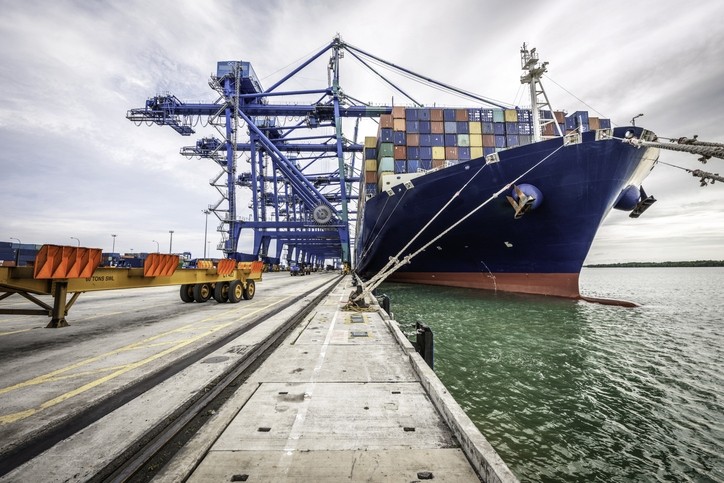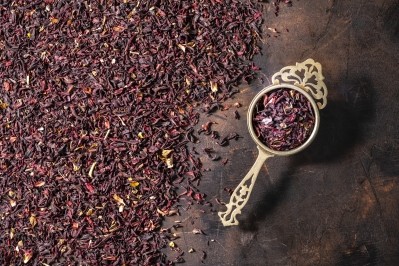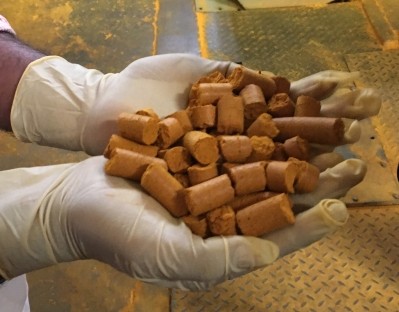AHPA event to delve into botanical supply headaches made worse by energy shortage

The annual American Herbal Product Association’s Botanical Congress is this year branded with an Immunity moniker. Immune health ingredients have seen an unprecedented uptick in sales and new product launches.
Pandemic dislocations continue
That surge is a direct result of the advent of COVID-19, of course. But the global pandemic has had other unprecedented effects, too, including a dislocation of global transportation systems and labor shortages that have grave consequences for the supply chain.
These dislocations are having some fairly easily foreseen effects. Container space on ships is much more expensive now than it was two or three years ago, and prices continue to go up. Shipments take longer to get to where they’re going and delivery dates have become less reliable. Some manufacturing processes that might see an ingredient make several stops along the way have become more difficult to manage.
Energy shortages add unwelcome twist
But recently new issues have cropped up that were not as predictable. The disruption of the global transportation system has caused a looming energy crisis, which is more about price and availability than it is about an actual shortage. The world is not running out of coal and oil, in other words. But the methods of producing and delivering these supplies aren't functioning as they once did.
India, for example, is reporting that many of its coal fired power stations, the country’s main source of electricity, are down to only a few days’ worth of coal. The country has been mining an ever increasing amount of coal in recent years, and that activity was depressed in a minor way by the pandemic.
But a more pressing issue is that India’s energy authorities have been in the habit of importing coal to cover for periodic shortfalls in supply as the country’s energy demands increase faster than the domestic supply does. Getting that coal into the country fast enough and at a price the country can afford is becoming a headache.
These accustomed imports have also been used to cover for the annual dip in coal deliveries caused by the seasonal monsoon rains. The rains this year have been heavier and longer lasting than normal, said Ajay Patel, founder of branded ingredient supplier Verdure Sciences. Patel will be one of the speakers at the AHPA event, which is scheduled for Friday, Oct. 29 at the Mandalay Conference Center in Las Vegas, NV.
“Environmental challenges are part of the equation. Monsoons in India which should be well behind us are still lingering across the county which has prolonged the harvest of various botanicals, and has slowed down logistics impacting movement of goods, and personnel,” Patel told NutraIngredients-USA.
“Extended monsoons in India this year have slowed things down with respect to harvesting, post-harvest processing and transportation from growing areas to warehouses (and factories). As for the impact on various botanicals which are typically harvested post the monsoons (Turmeric, Ashwagandha, Holy basil, Bacopa, Amla, Boswellia , etc.), we’ll know more in the coming weeks. However the extended monsoons are certainly not a good sign,” he added.
Kinks in the manufacturing chain
Patel said the system of multiple touch points in the manufacture of certain ingredients (one stop for crude processing, another for extraction, perhaps a third for blending, for example) is becoming less likely to flow smoothly. And possible electricity blackouts aren’t helping.
“COVID has definitely changed the manufacturing landscape of botanical extracts, especially as this process is quite complex with the involvement of several tiers within the supply chain. Raw herbs come from very remote areas which in some cases takes several weeks to arrive to production sites across India. Whenever the local demand of the key Indian botanicals increases, getting consistent good quality of herbs is a huge challenge for manufacturers,” he said.
“Stringent COVID related protocols including, quarantine and social distancing practices at factories has most certainly slowed down output as with other industries. Most recently the coal crisis has required unannounced staggering of power, and more dependability on more expensive diesel powered generators,” he added.
Problems extend to China
India is not the only country critical to botanical ingredient supply suffering from energy problems. Wilson Lau, vice president of NuHerbs, said China’s short term electrify supply situation might be even more dire than is India’s. Lau will join Patel on the panel in Las Vegas.
“Nothing had really changed on the ingredient supply front until the last two or three weeks when the Chinese government began rationing energy supplies throughout China. Factories’ access to electricity is limited to certain days of the week. Depending on the type of operation you have, it could lead to negative consequences, especially if the weather doesn’t cooperate during harvest season,” he said.
Reuters is reporting that Chinese coal production could drop by as much as 12% this winter as a result of the cumulative disruptions.
Diesel fuel is not the only added cost in the system. Both Patel and Wilson Lau, vice president of Nuherbs, said shipping costs continue to go up.
“The majority of our exports from India have seen container prices more than double in the last two to three months from the already escalated prices since the onset of COVID in 2020,” Patel said.
“We may be moving from issues at origin to issues once it arrives to the US. It can range from unloading times and inland freight issues caused by the shortage of drivers, warehousing, not enough truck chassis, etc. Ships are still lined up outside the busiest ports waiting weeks for a berth to unload, and the truck driver shortage means the ports are overflowing with containers nobody is picking up,” Lau said.
New paradigm needed for supply planning
Both Patel and Lau said that the global shipping system is likely to remain in a state of chaos well into 2022 and perhaps even beyond. It’s time, they said, for companies to start planning a new strategy for how they source their raw materials.
“There will not be anything close to a ‘normal’ in the foreseeable future, and if anything positive, its going to be a ‘new normal,’ which in the botanical world will see manufacturers of botanical raw materials, contract manufacturers, and brands put significant emphasis (and investment) on mitigation of supply chains, process efficiencies, building long term partnerships, all in an effort to drive long term sustainability of botanicals,” Patel said.
“Most experts say that this will last until at least well into 2022, but possibly 2023, and that is if things stay the way that they are now. If there are additional unforeseen black swans or other roadblocks, it could be a while before we figure things out. Who would ever imagine that the UK or Germany would be facing an energy shortage?” Lau added.
For more about the AHPA event, which has a virtual attendance option, visit the event homepage.
















